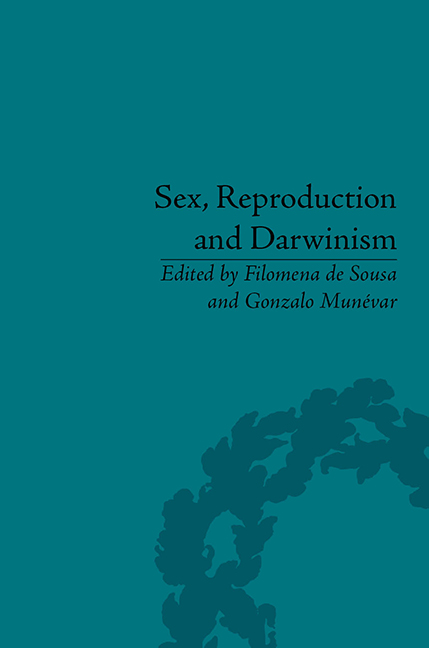Book contents
- Frontmatter
- CONTENTS
- Acknowledgements
- List of Contributors
- List of Figures and Tables
- Introduction
- Part I Reproduction, Mortality and Evolution
- Part II Reproduction without Sex?
- Part III Sex without Reproduction?
- Part IV Sexual Selection and Morality
- 8 Altruism and Sexual Selection
- 9 The Role of Sex and Reproduction in the Evolution of Morality and Law
- Part V Sex, Reproduction and Evolutionary Psychology
- Part VI Eugenics from Natural to Social Selection
- Notes
- Index
9 - The Role of Sex and Reproduction in the Evolution of Morality and Law
from Part IV - Sexual Selection and Morality
- Frontmatter
- CONTENTS
- Acknowledgements
- List of Contributors
- List of Figures and Tables
- Introduction
- Part I Reproduction, Mortality and Evolution
- Part II Reproduction without Sex?
- Part III Sex without Reproduction?
- Part IV Sexual Selection and Morality
- 8 Altruism and Sexual Selection
- 9 The Role of Sex and Reproduction in the Evolution of Morality and Law
- Part V Sex, Reproduction and Evolutionary Psychology
- Part VI Eugenics from Natural to Social Selection
- Notes
- Index
Summary
Introduction
As human beings consider themselves members of a biological species, we can offer explanations of our origin and nature based on the theory of evolution. Such explanations can include the role of sex and reproduction in the origin of morality and the law.
The theory of evolution starts from the fact that organisms change through time in a process of variation, adaptation and selection where success is measured by the biological efficiency of individuals to leave descendants that in turn will also leave descendants. Individuals are active agents in their environment; they react, behave and interact with other individuals of the same or different species in an adaptive way. This drive to live has been classified by biologists as selfish and it is manifested in two very different forms called positive selfishness and negative selfishness.
We talk about positive selfishness when, through interaction, organisms obtain mutual benefits; these kind of relationships are in general called symbiotic. But, when through interaction with another, an organism obtains benefit at the cost of harm to the other, we speak of negative selfishness. These types of relationships are generally called parasitic.
R. Wright, who applies the theory of games to the biological evolution of organisms, states that, when organisms interact, they either follow zero-sum dynamics, where one wins and the other one loses, or non-null dynamics, where two organisms or entities benefit from the mutual interaction, although not necessarily through cooperation.
- Type
- Chapter
- Information
- Sex, Reproduction and Darwinism , pp. 141 - 152Publisher: Pickering & ChattoFirst published in: 2014



